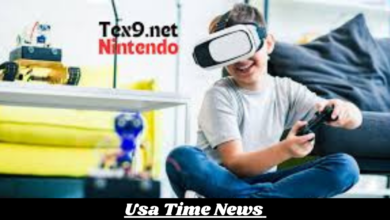The Social Dynamics of Ludo: Connecting Players Through Digital and Traditional Means

Ludo, a game cherished for its simplicity and strategic depth, has been a social staple for generations. In today’s digital world, the game continues to forge connections among players, blending traditional and modern social dynamics. This article delves into how Ludo fosters social interaction both online and offline, and how these connections enrich the gaming experience. For a closer look at how Ludo bridges social gaps, visit https://www.ludobheem.net.
1. Ludo’s Traditional Social Appeal
1.1 Family Bonding Over the Board
Traditionally, Ludo has been a popular choice for family game nights. Its easy-to-understand rules and engaging gameplay make it a perfect activity for families to bond and spend quality time together. The game fosters communication and interaction, often leading to lively and memorable family gatherings.
1.2 Friendship and Community Building
Ludo has also been a tool for building friendships and community ties. Local game nights and community events centered around Ludo provide opportunities for people to come together, share experiences, and build connections. The game’s social nature encourages friendly competition and camaraderie.
1.3 Cultural and Social Events
Ludo’s role extends beyond personal circles to cultural and social events. Traditional Ludo tournaments and festivals celebrate the game’s cultural significance and bring people from diverse backgrounds together. These events highlight Ludo’s enduring appeal and its role in fostering social cohesion.
2. The Digital Revolution: Ludo in the Online Realm
2.1 Online Multiplayer Features
The digital transformation of Ludo has introduced online multiplayer features that allow players to connect with others around the world. Online platforms enable friends and family to play together regardless of physical distance, creating a global community of Ludo enthusiasts.
2.2 Social Media Integration
Modern Ludo apps and platforms often integrate with social media, allowing players to share their achievements, challenge friends, and participate in online communities. This integration enhances the social aspect of the game by connecting players through shared experiences and interactions.
2.3 Virtual Tournaments and Events
Online Ludo has given rise to virtual tournaments and events where players can compete on a global stage. These events provide a platform for players to showcase their skills, earn recognition, and interact with other competitive gamers. Virtual tournaments often come with exciting prizes and are a great way to engage with the Ludo community.
3. Enhancing Social Interaction with Ludo
3.1 Interactive Features in Digital Ludo
Digital Ludo platforms often include interactive features such as chat options, emoji reactions, and live commentary. These features enhance communication and interaction among players, making the online gaming experience more social and engaging.
3.2 Customizable Game Modes
Many digital Ludo apps offer customizable game modes that allow players to create unique gaming experiences. This customization can include altering game rules, designing custom boards, and setting up special challenges. Personalized game modes enhance player engagement and foster a sense of ownership and creativity.
3.3 Community Building and Support
Online Ludo communities provide a space for players to connect, share strategies, and support each other. Forums, social media groups, and fan pages dedicated to Ludo create a sense of belonging and offer players a place to discuss their favorite game.
4. Future Trends in Ludo’s Social Dynamics
4.1 Augmented Reality (AR) and Social Interaction
Augmented Reality (AR) technology has the potential to further enhance social interaction in Ludo. AR can create immersive environments where players can interact with each other and the game board in new and exciting ways, bridging the gap between digital and physical play.
4.2 Virtual Reality (VR) Social Spaces
Virtual Reality (VR) is set to revolutionize social gaming by creating virtual spaces where players can meet and play Ludo together. VR environments offer a more immersive and interactive experience, allowing players to engage with each other in a three-dimensional space.
4.3 Integration with Emerging Technologies
As emerging technologies continue to develop, we can expect new innovations in how Ludo fosters social interaction. Future advancements may include AI-driven social features, more sophisticated online communities, and enhanced virtual experiences that further connect players.
5. Balancing Digital and Traditional Social Play
5.1 Maintaining Personal Connections
While digital Ludo offers many benefits, it’s essential to maintain the personal connections that come from traditional gameplay. Balancing online and offline play ensures that the game continues to serve as a social connector in both digital and physical spaces.
5.2 Promoting Inclusive Play
Promoting inclusive play means ensuring that Ludo remains accessible to all players, regardless of their technological preferences or abilities. By embracing both traditional and digital forms of the game, we can create a more inclusive and connected gaming community.
5.3 Celebrating Ludo’s Legacy
Ludo’s legacy as a social game is a testament to its enduring appeal. Celebrating this legacy through events, community gatherings, and personal interactions helps preserve the game’s rich history and its role in fostering social connections.
Conclusion
Ludo’s journey from a traditional board game to a digital phenomenon highlights its unique ability to connect people across different platforms. Whether through family game nights, online multiplayer matches, or virtual tournaments, Ludo continues to build social bonds and create memorable experiences. For more information on how Ludo connects players in the digital age, visit https://www.ludobheem.net.



